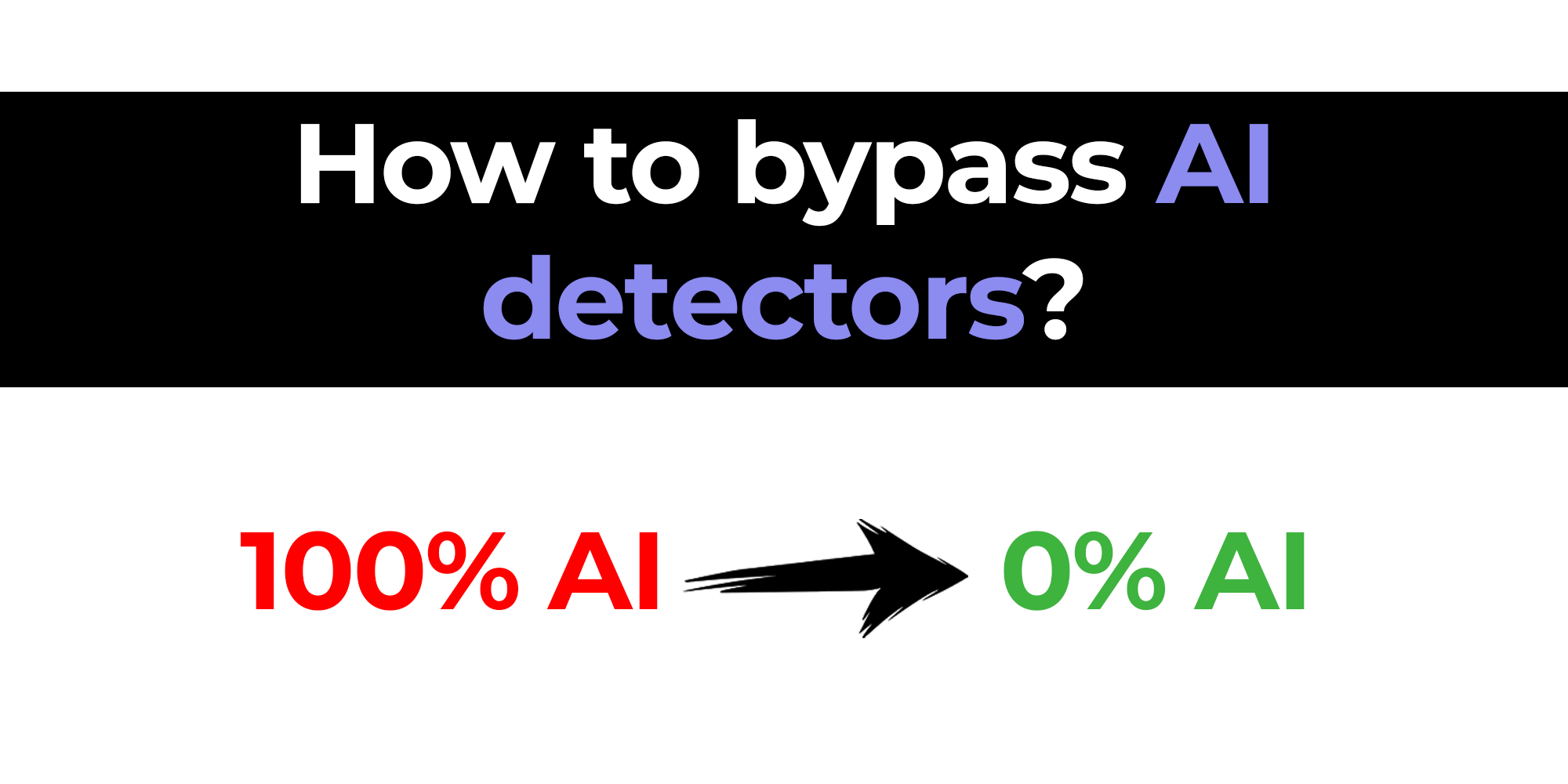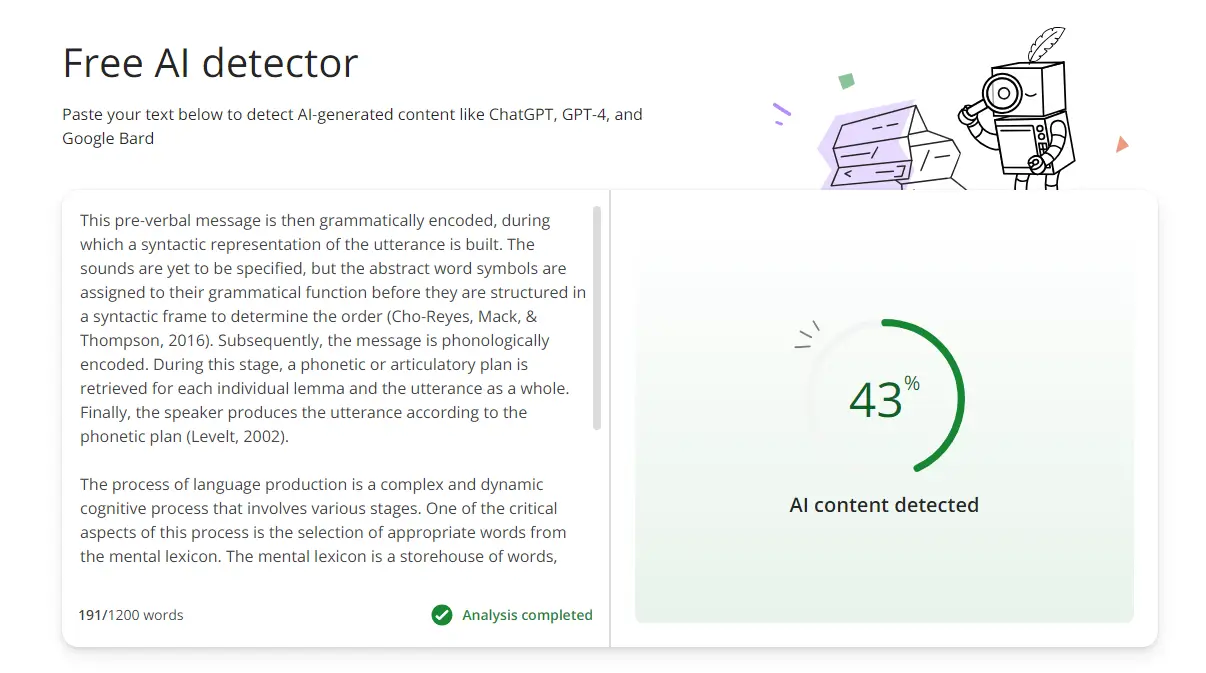Understanding the Value of an Ai Detector in Today's Digital Landscape
As artificial knowledge remains to permeate various aspects of web content development, comparing human-generated and machine-generated product has actually become significantly complicated. This progressing landscape presents considerable challenges associated to credibility and credibility, requiring the development of AI detection devices. These tools not just help in recognizing AI-produced material yet also maintain the integrity of details dissemination. Understanding their function becomes critical as we navigate a future where the integrity of media is under constant scrutiny. What implications might this have for consumers and designers alike?
The Rise of AI Content

The increase of AI-generated content has considerable ramifications for different sectors, including amusement, journalism, and advertising and marketing - ai detector. Organizations are progressively using these technologies to enhance efficiency, customize material, and involve audiences more effectively. The ability to assess huge datasets allows AI systems to customize material to meet particular user choices, supplying a more personalized experience
Nonetheless, the spreading of AI content likewise elevates vital considerations for content makers and customers alike. As AI ends up being much more integrated into content production process, understanding the nuances of AI-generated material is vital for keeping high quality and relevance in a swiftly developing electronic atmosphere. Embracing this technical development while remaining vigilant about its ramifications is vital for stakeholders in the digital media landscape.
Difficulties of Authenticity
The introduction of AI-generated web content has introduced substantial difficulties relating to credibility in electronic media. As algorithms end up being more advanced, comparing machine-generated and human-created material ends up being significantly challenging. This obscuring of lines elevates worries regarding the reliability of information and the capacity for false information to multiply.
Among the key obstacles is the disintegration of depend on among consumers. With AI with the ability of producing practical message, pictures, and video clips, individuals may locate it challenging to discern genuine sources from deceptive ones. This skepticism can bring about a more comprehensive mistrust of all electronic web content, complicating initiatives to identify credible information.
Additionally, the implications for intellectual property are substantial. As AI devices produce material based upon existing works, questions concerning possession and creativity develop. Material creators might struggle to safeguard their work from anonymous AI recreations, threatening their rights and incomes.
Finally, the possibility for harmful usages of AI-generated web content, such as deepfakes and computerized publicity, postures serious honest and societal risks. These challenges highlight the immediate requirement for structures that promote credibility in the digital landscape, making certain that details stays reliable and trustworthy.
Role of AI Detectors
Addressing the obstacles of credibility in digital media calls for ingenious options, and AI detectors have actually emerged as an important tool in this effort. These modern technologies are made to evaluate and recognize content created by expert system, consequently helping with the discernment in between machine-generated and human-created materials. The role of AI detectors expands past simple identification; they additionally contribute to maintaining the integrity of details taken in by the public.
AI detectors use sophisticated formulas to look at different aspects of digital content, consisting of linguistic patterns, structural abnormalities, and specific markers that suggest automation. Their application spans numerous fields, consisting of journalism, education and learning, and social media sites, where the visibility of AI-generated material can lead to false information and disintegration of trust fund.

Benefits of Making Use Of AI Detectors
Making certain authenticity in digital content personifies the basic demand for count on info sources, and AI detectors act as an effective ally in this search. By recognizing AI-generated web content, these tools help maintain the integrity of details, therefore protecting individuals from misinformation and enhancing overall content top quality.
One of the primary advantages of utilizing AI detectors is their ability to improve content confirmation processes, dramatically lowering the time and initiative needed to evaluate the authenticity of electronic materials. This effectiveness enables content creators, instructors, and services to concentrate on producing reputable and high-grade information, instead of investing too much get more resources on fact-checking.
Additionally, AI detectors foster accountability among material makers. The expertise that AI-generated web content can be recognized encourages transparency and honest techniques in content manufacturing. This, subsequently, contributes to an extra enlightened digital area, as individuals can with confidence engage with confirmed information.
Future of Web Content Verification
As the landscape of electronic material remains to advance, the future of content verification presents both challenges and possibilities for maintaining credibility. As AI technologies advance, so as well do the approaches for disseminating and creating misinformation (ai detector). This arms race between content makers and verification tools demands the development of more advanced AI detectors efficient in critical this link authentic content from adjusted or produced product

In addition, the increase of decentralized modern technologies, such as blockchain, holds promise for validating content provenance, making sure that users can trace the origins of the information they eat. Eventually, the future of web content verification will certainly rest on our ability to introduce despite developing threats, fostering a digital atmosphere where credibility is recognized and maintained as an essential principle.
Conclusion
In verdict, the spreading of AI-generated redirected here content necessitates durable systems for credibility confirmation. The future of content verification hinges on the efficiency of AI detectors in maintaining credibility across various media systems.
AI content production tools, such as all-natural language handling versions and generative adversarial networks, make it possible for companies and people to produce top notch web content at unprecedented speeds and reduced expenses.
Nevertheless, the expansion of AI content additionally elevates crucial factors to consider for material creators and consumers alike. As the sophistication of AI-generated web content proceeds to evolve, the duty of AI detectors comes to be significantly crucial in safeguarding authenticity and advertising openness in digital interaction. The understanding that AI-generated web content can be determined motivates openness and ethical practices in web content production.As the landscape of digital content proceeds to develop, the future of web content verification tests both offers and possibilities for maintaining authenticity.